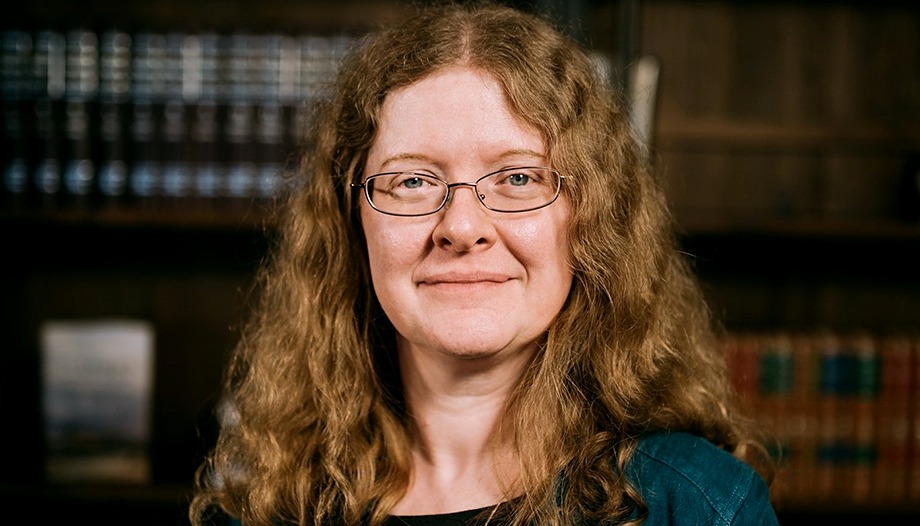The book Not God's type is the story of Holly Ordway - an atheist academic, professor of English Language and Literature in the United States - told in first person with frankness and honesty. It is the story of a competitive fencing fighter, argumentative, rationalist, who tenaciously seeks the truth, without fatigue or rest, in short, a courageous investigator of the truth by the rational way.
"Willing to listen to arguments about the veracity of Christianity.""Willing to listen to arguments about the veracity of Christianity", she had the gift of meeting Christians who were able to help her in her reflections, among them her fencing teacher. Her testimony is "an account of God's work, the story of grace at work in and through human beings". "an account of God's work, the story of grace at work in and through human beings."
As the translator Julio Hermoso writes in the foreword to the Spanish edition, "Lewis and Tolkien, among others, play a leading role [...]: they are the tools at hand for a teacher of English Literature who has grown up reading them, and does not hesitate to stand on their solid and broad shoulders".
Her search for the truth does not start from doubts, but from two beliefs and a deep desire that Ordway expresses as follows: "Although my creed held that there was no ultimate meaning, I was obdurate in the belief that there was such a thing as truth and valued truth as an absolute good. [...] I wished to know the truth and to live by it, whatever it was.". Ordway narrates her double conversion, first to Christianity and later to Catholicism.
From atheism to Christianity
As an academic, Ordway found it "exciting to learn more about theology and about doctrine." Gradually she came to understand the Christian faith, which until then she had considered to be a belief of people "uneducated and superstitious.". Gradually Ordway moved forward "toward a conversation about faith".. She began to feel comfortable with Christians answering her questions, something that did not fit with what she expected. Ordway discovered that faith "could be based on reason", i.e., that the faith was open to debate and investigation.
Professor Ordway sought answers to such questions as the origin of morality, the existence of conscience, the eternity of truth, life after death, perfect justice or mercy, and on one basic question: the first cause of the universe. She looked at this question from various points of view, gave it a lot of thought and finally decided that there was no good reason to reject it; therefore, "it seemed that there was a creator of the universe". A first cause that "had intentionality [...] which we could call God: the origin of all morality".
Ordway left behind the shell of atheism. She accepted God as a person which had serious implications for her life. She rationally admitted that God was one, the Creator, the origin of all goodness. She delved into the historicity of the Resurrection and laid down "the weaponss"she decided to become a Christian. She was baptized. Her attention continued to be drawn to the cross; it was not enough for her to know about Jesus, she wanted to know him.
In this journey towards Christianity - Ordway says - the most difficult and transforming part was to find oneself for the first time at the foot of the cross.. "In my journey to Christian faith, I had focused on the resurrection; but, after my baptism, that sacramental entry into the death and resurrection of Christ, I began to discover that the cross is the wellspring of healing and transforming grace: it is not merely a part of the historical events of Jesus' passion and death, but the place where the incarnate God bore the full dark weight of human misery.".
From Christianity to Catholicism
Ordway then embarked on her journey to the Catholic Church. She read, studied, reflected and concluded that Catholic doctrine made a lot of sense, although she still felt comfortable in Anglicanism.
Marian dogmas and devotion to the Virgin Mary presented her with an obstacle. However, she could not fail to recognize the truth of the Church's teaching: "If Jesus is fully human and also fully divine, then his mother, Mary, is the mother of the second person of the Holy Trinity; she is the Mother of God, who bore God in her womb.". Finally, she decided to come out of her inner fortress and was received into the Catholic Church.
Conclusion
Not God's typeis a profoundly hopeful testimony of a conversion from atheism to Catholicism. It shows that it is possible to come to believe in the existence of God through study, reflection and listening.
After intense intellectual work and many conversations, Ordway sees for herself that Christianity is based on the historical and attested events of Christ's death and resurrection, and that theology and philosophy offer serious and complex answers that do not simplistically appeal to blind faith. If Ordway had been unaware or ignorant of these realities for so many years of her life, she simply and honestly attributes it to not having informed herself.
In the search for truth God goes ahead. He is the one who places in the soul of the person the seed of the desire not to succumb to darkness, that is, the desire to search until he finds the light. God rewards the search for truth and gives his grace to those who embark on this path to reach the desired goal.
Access to Holly Ordway's personal blog here.








